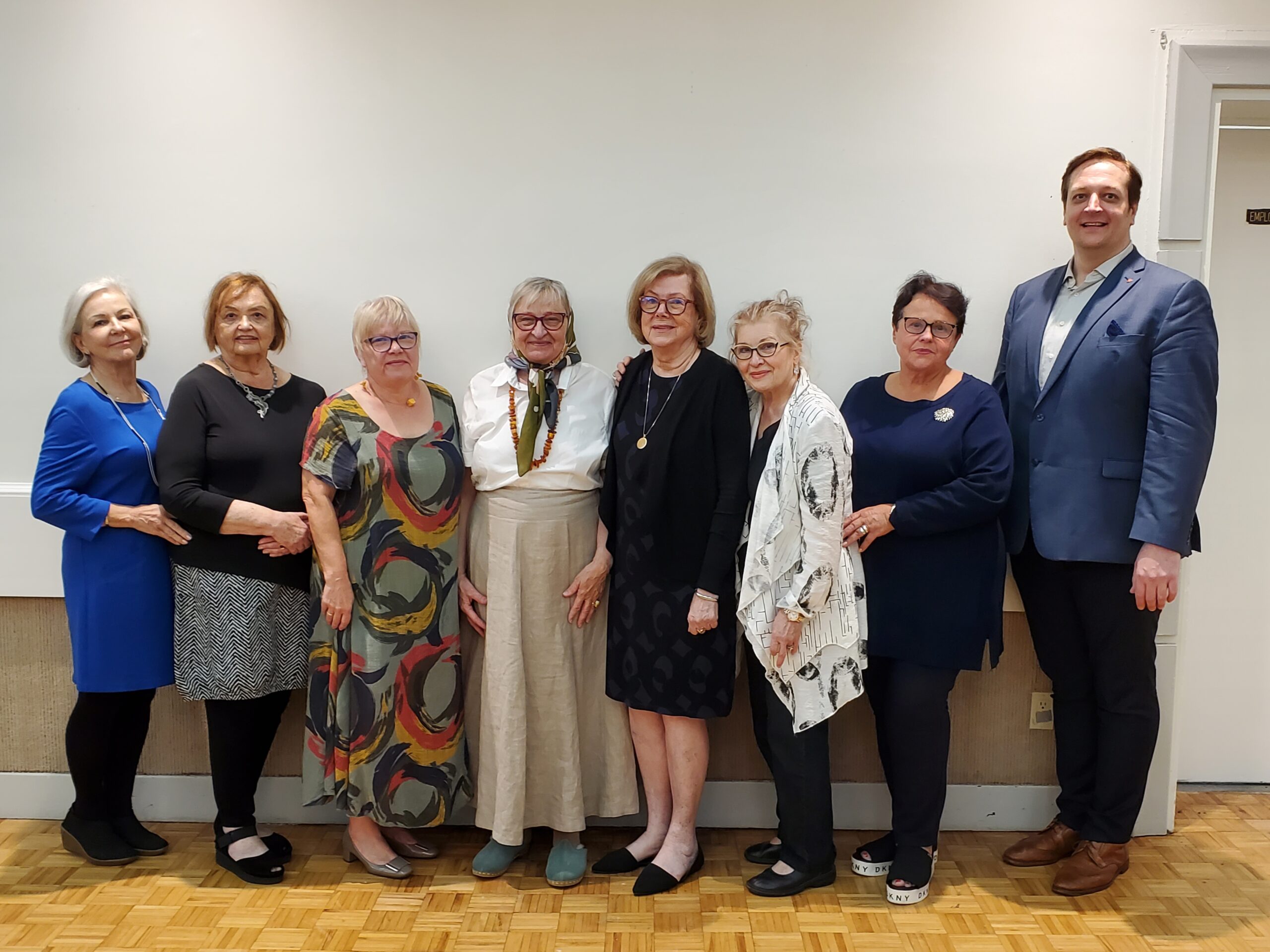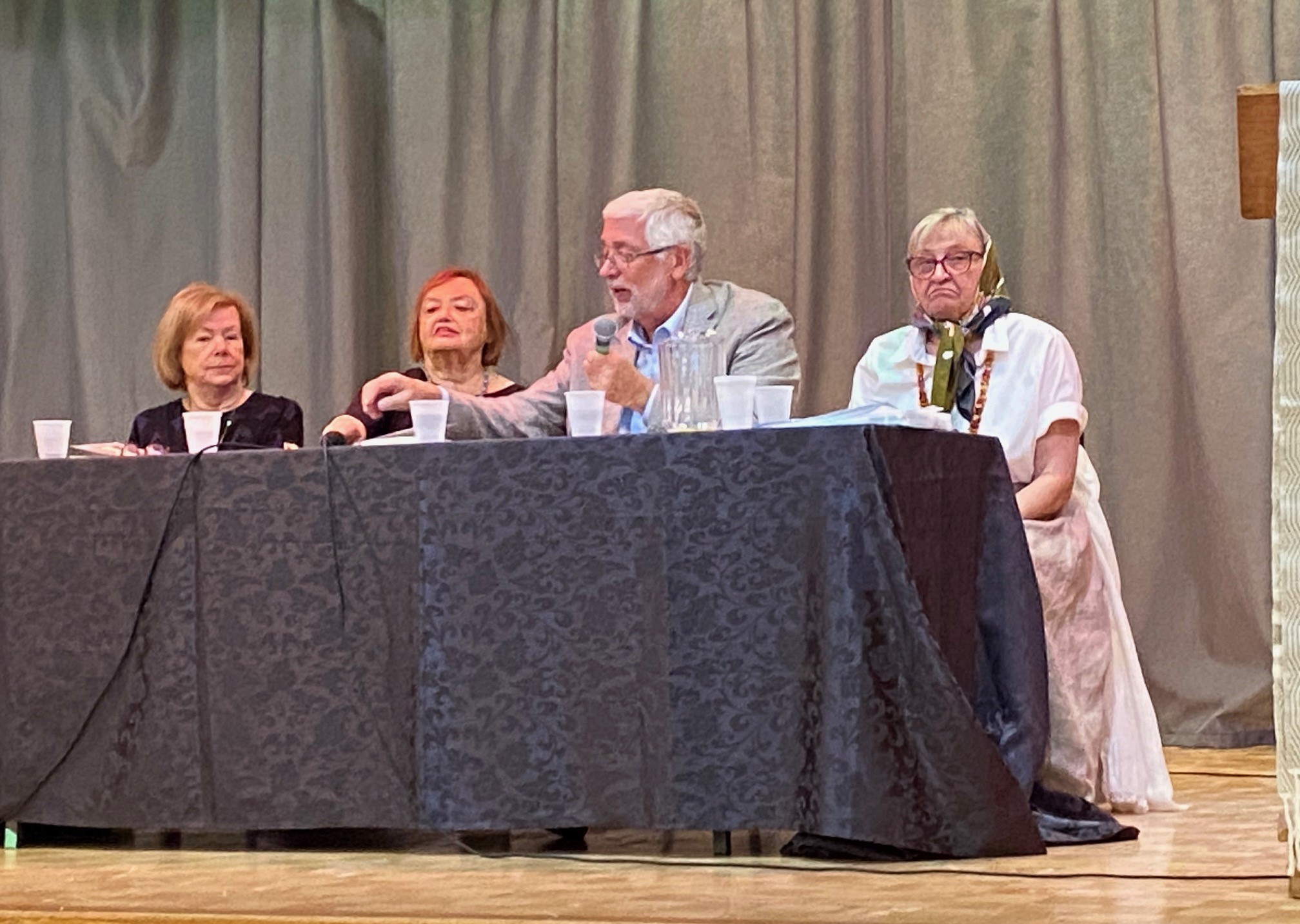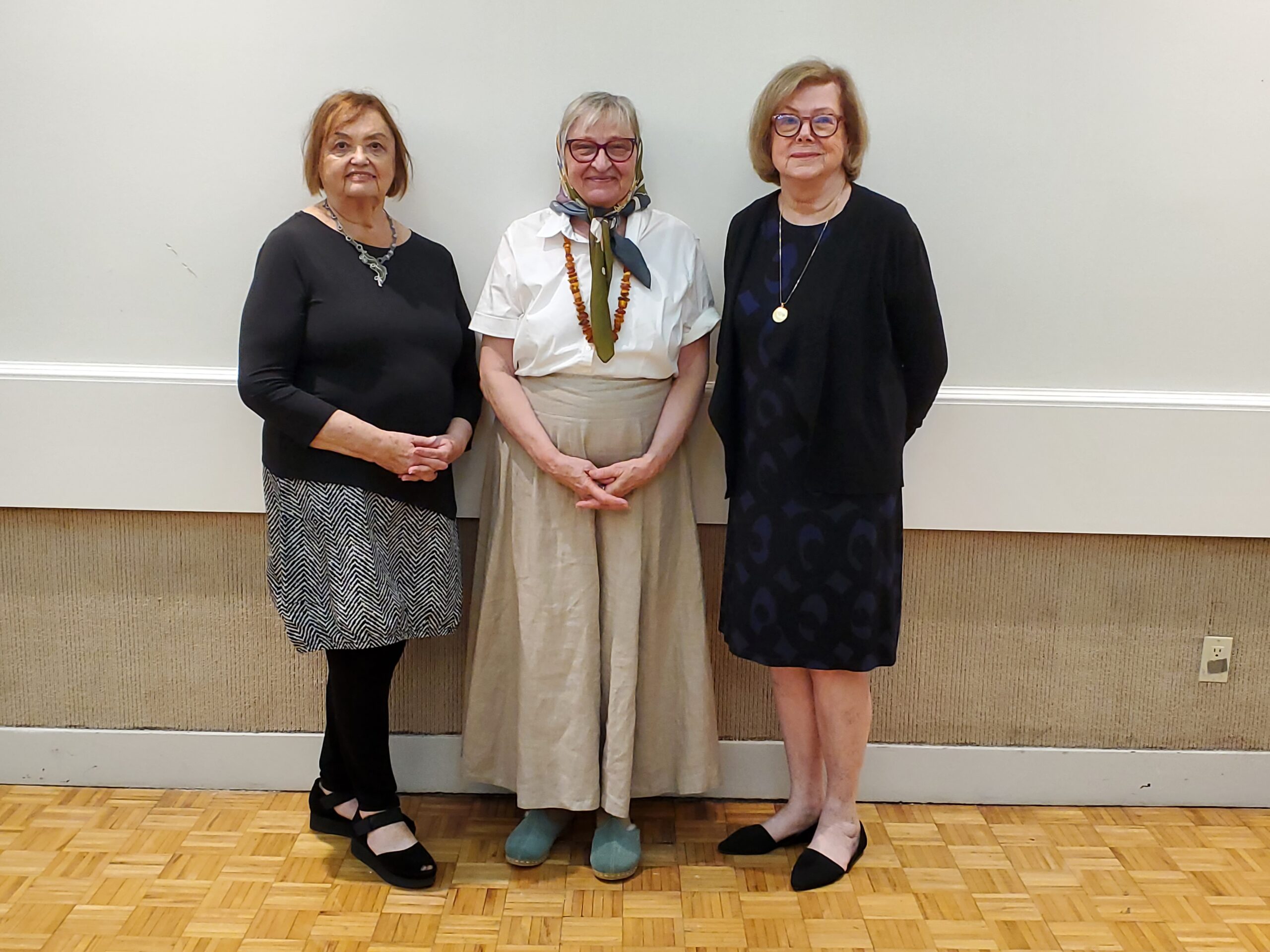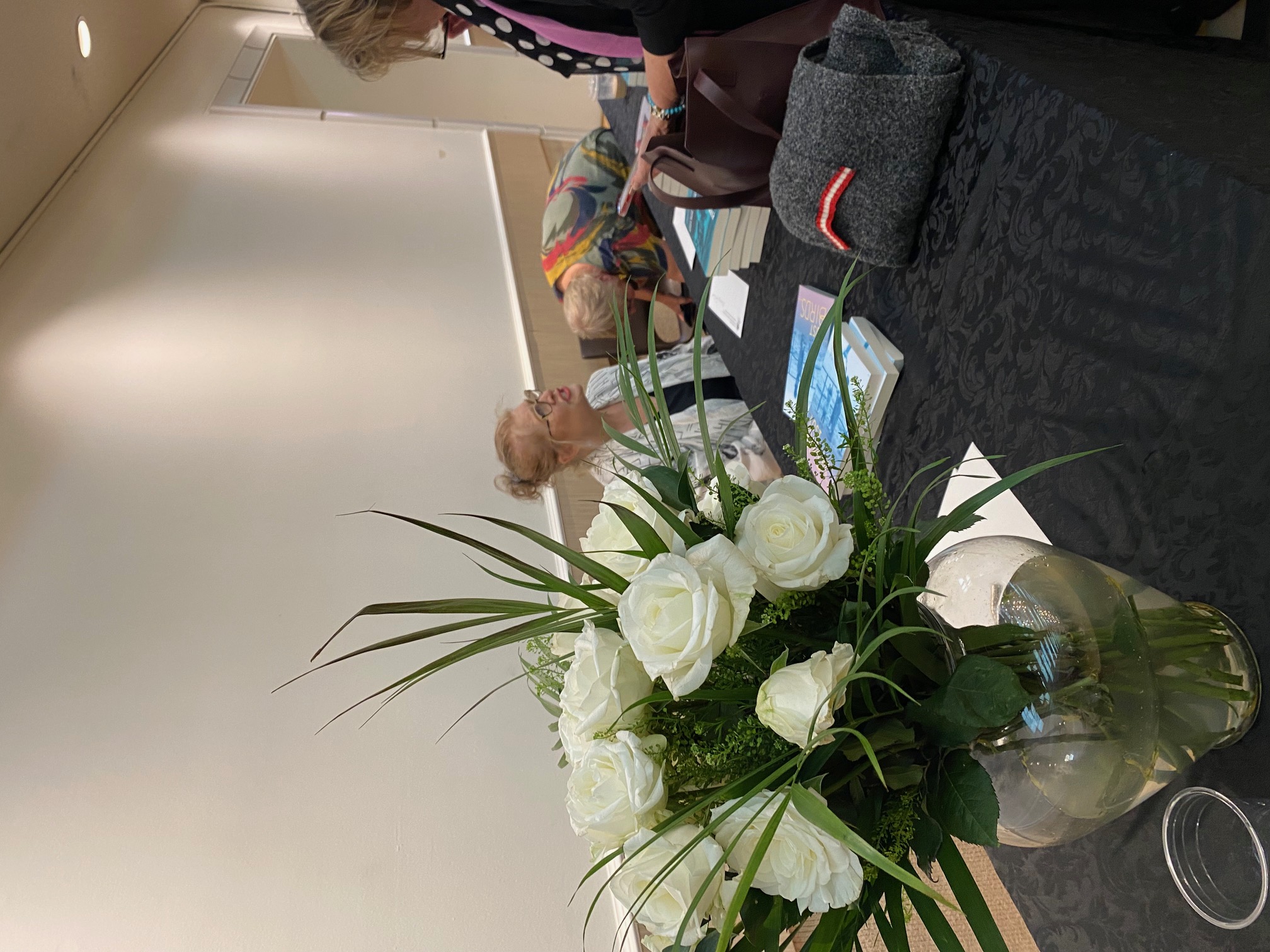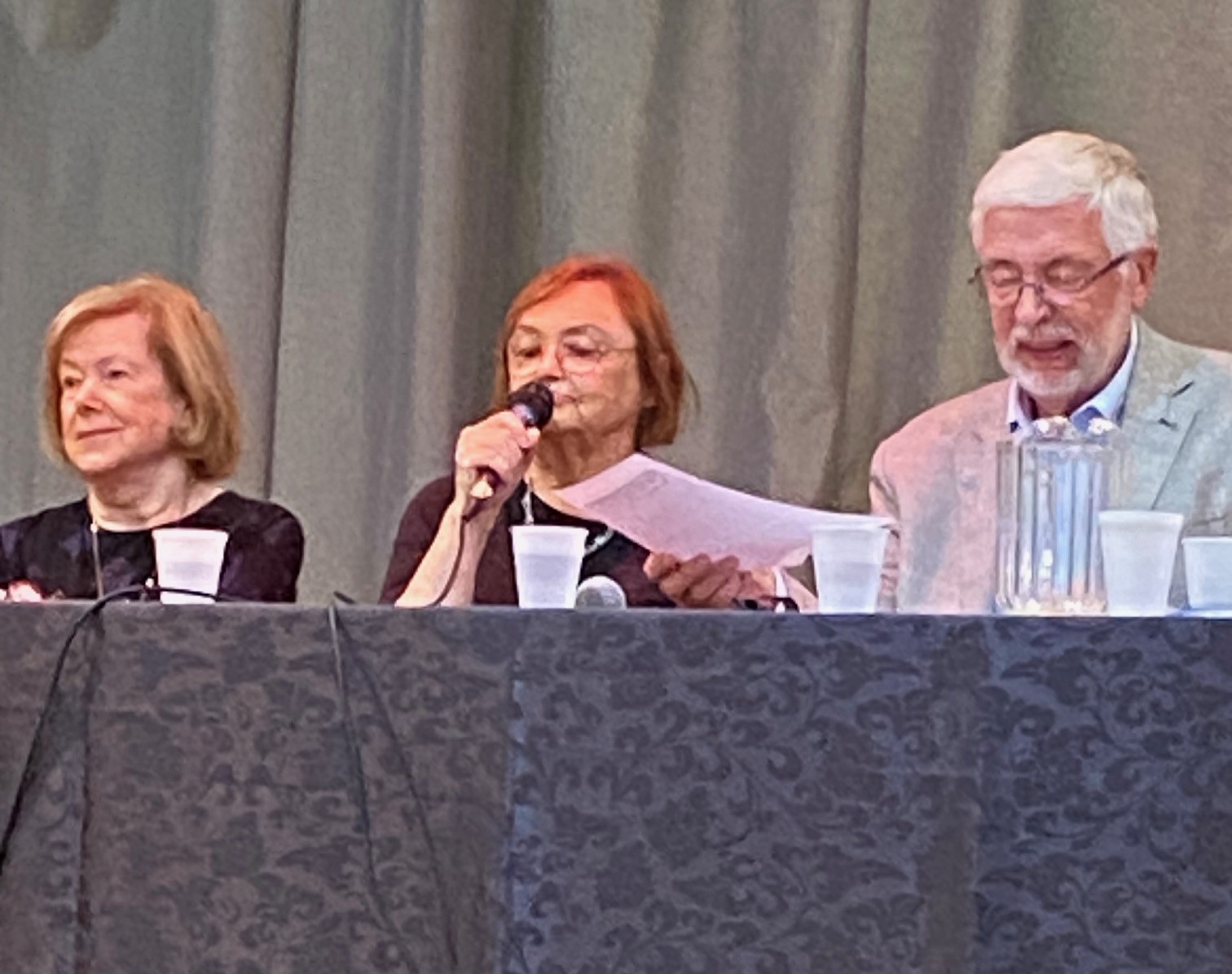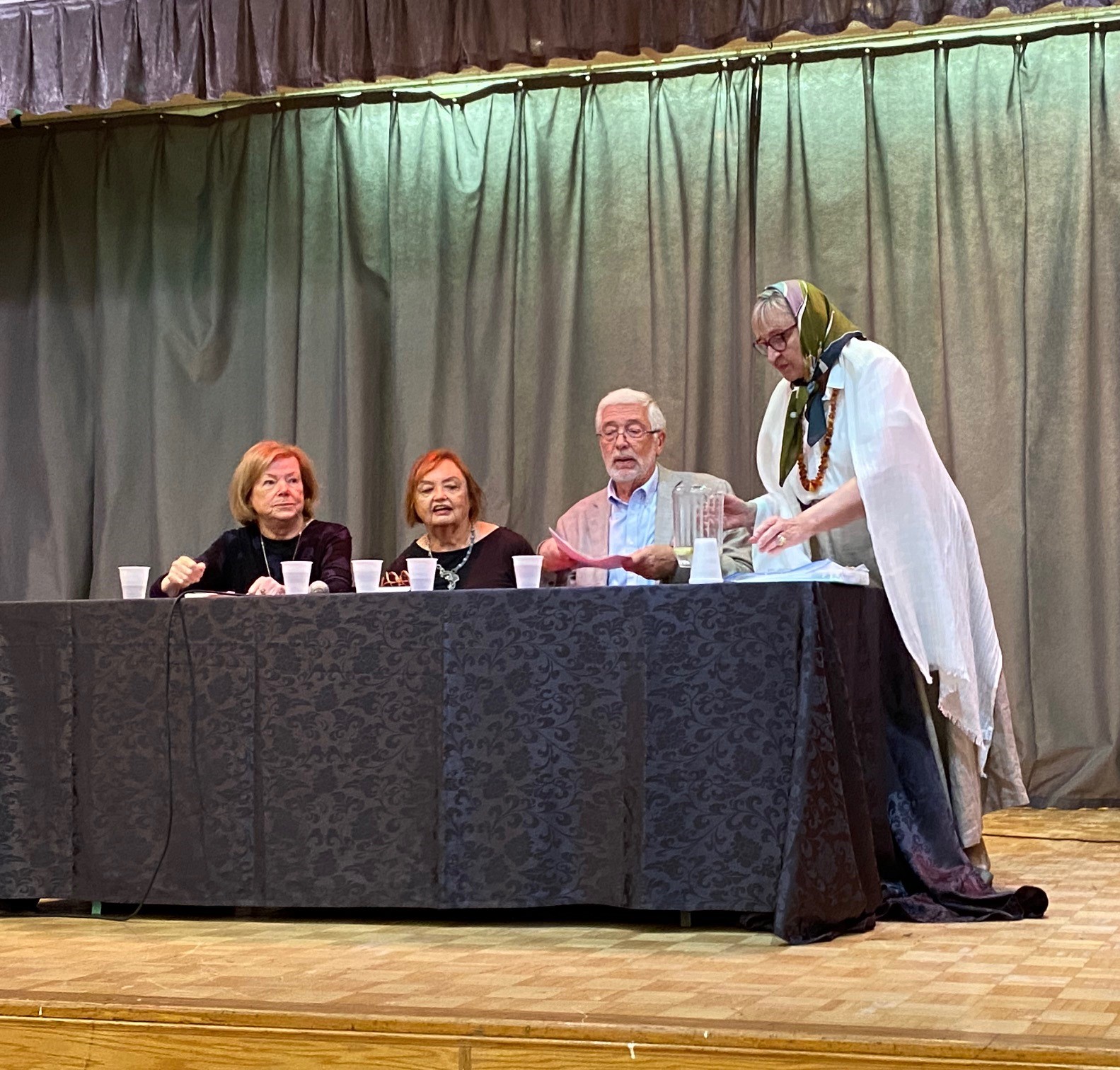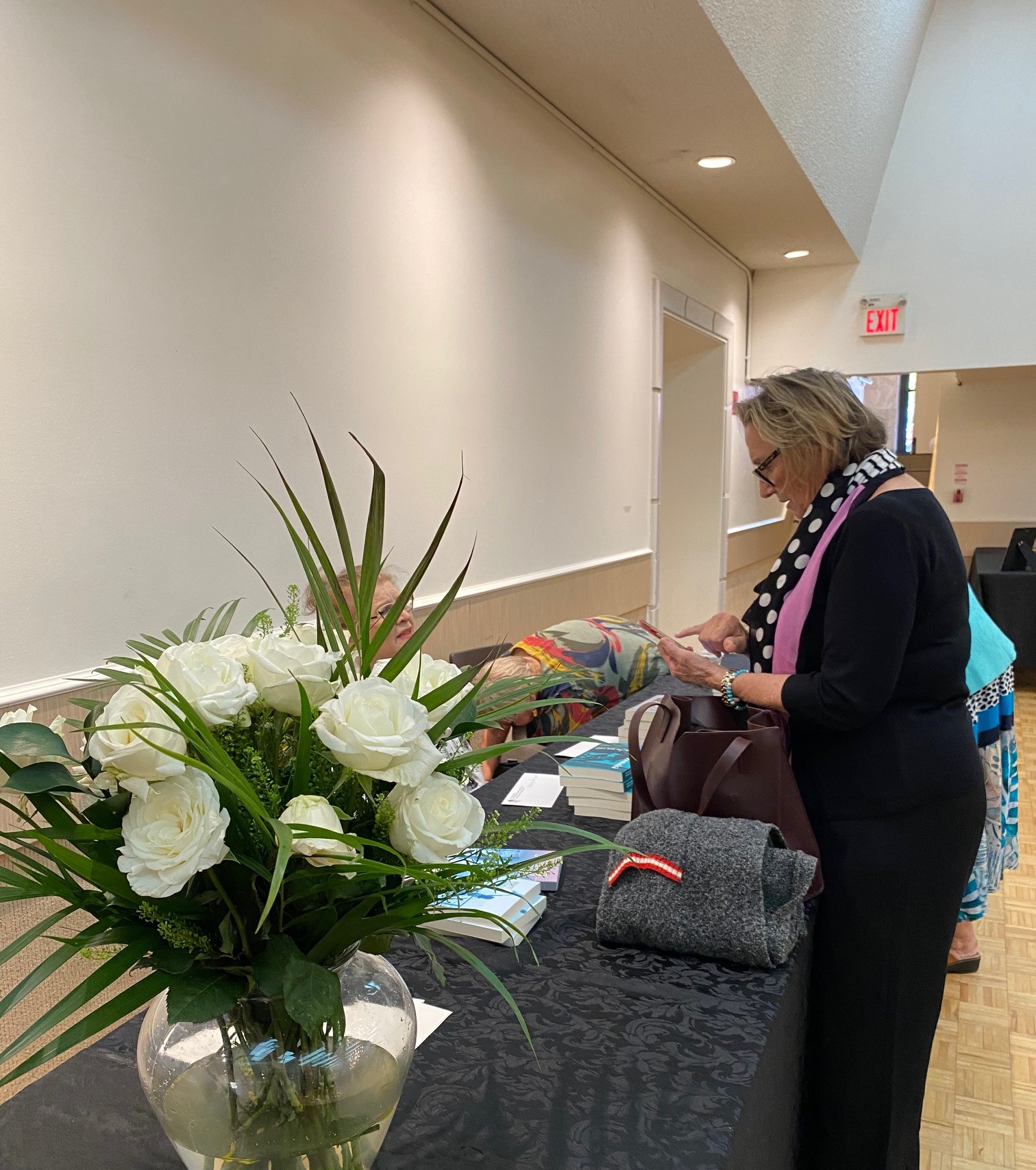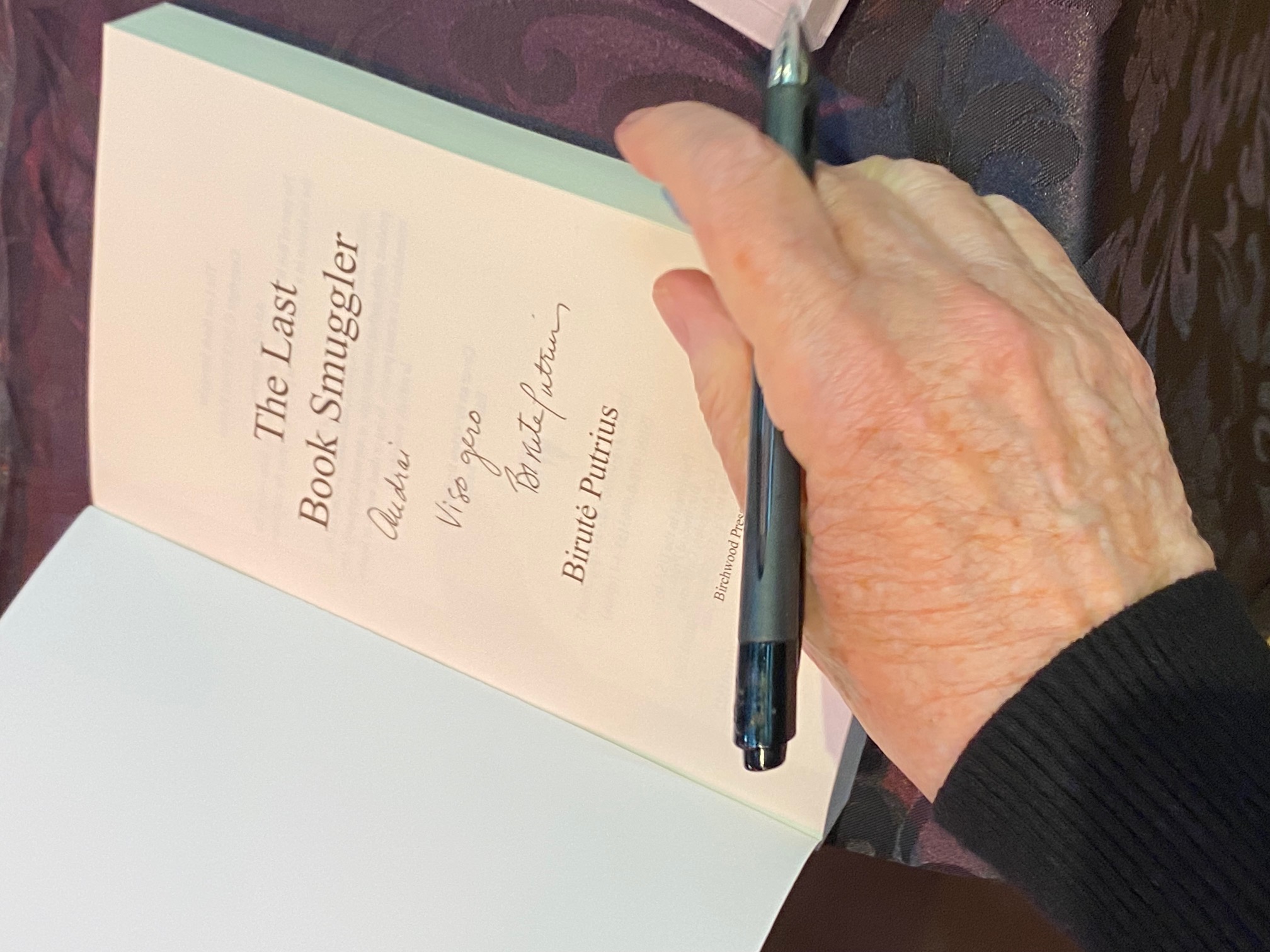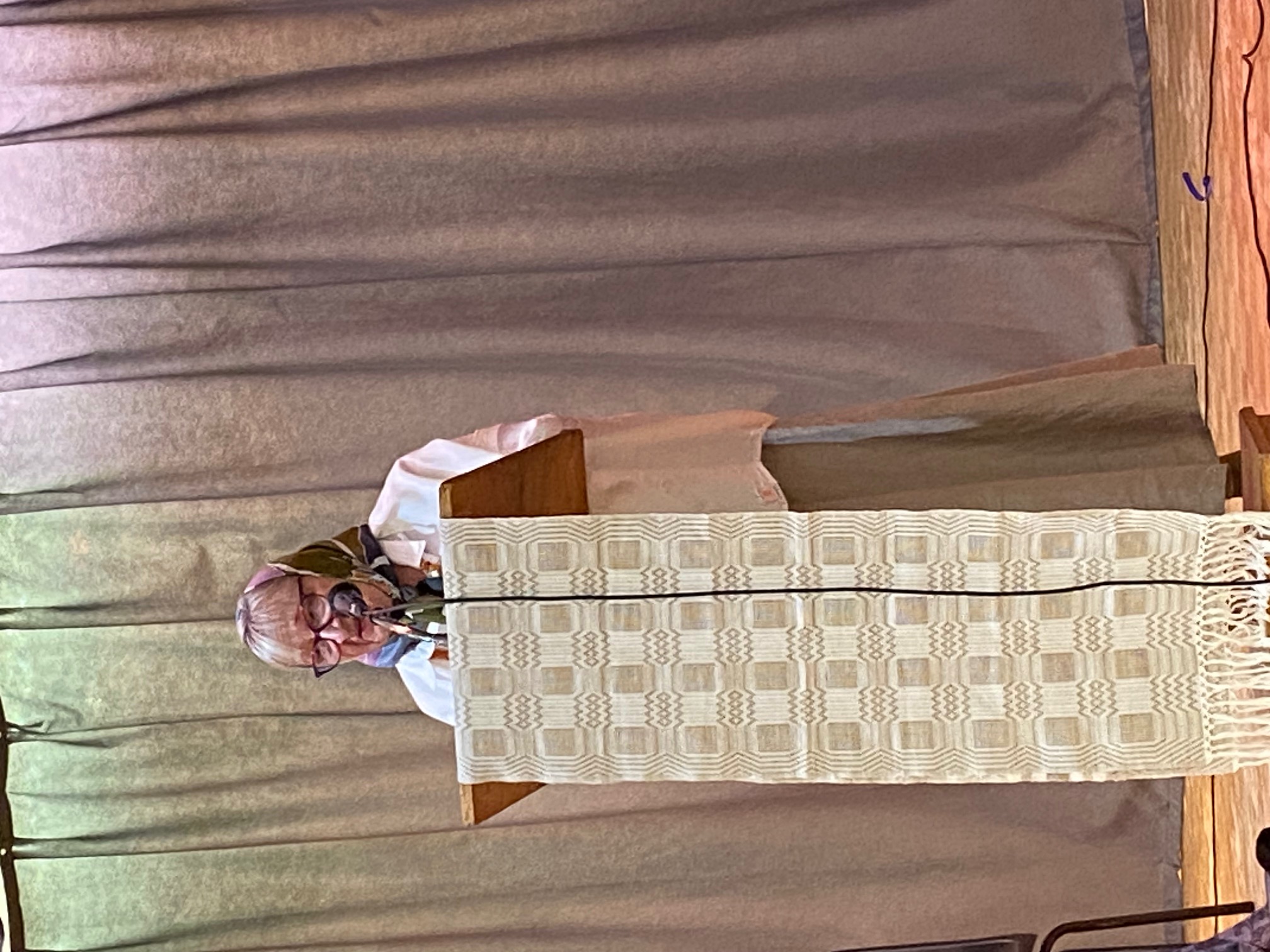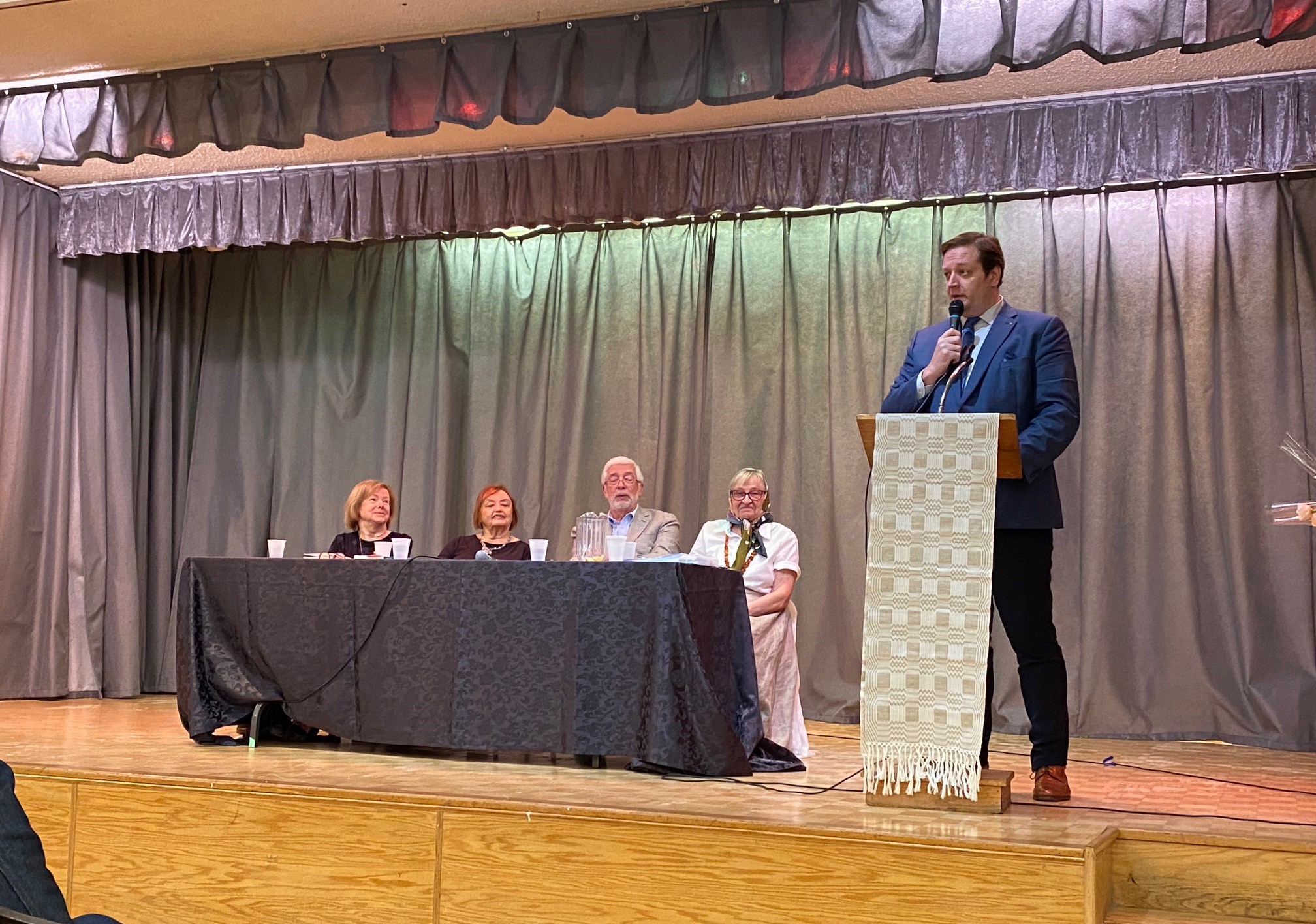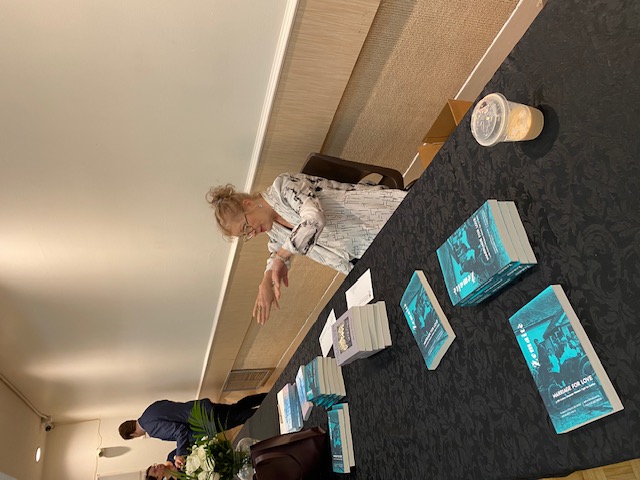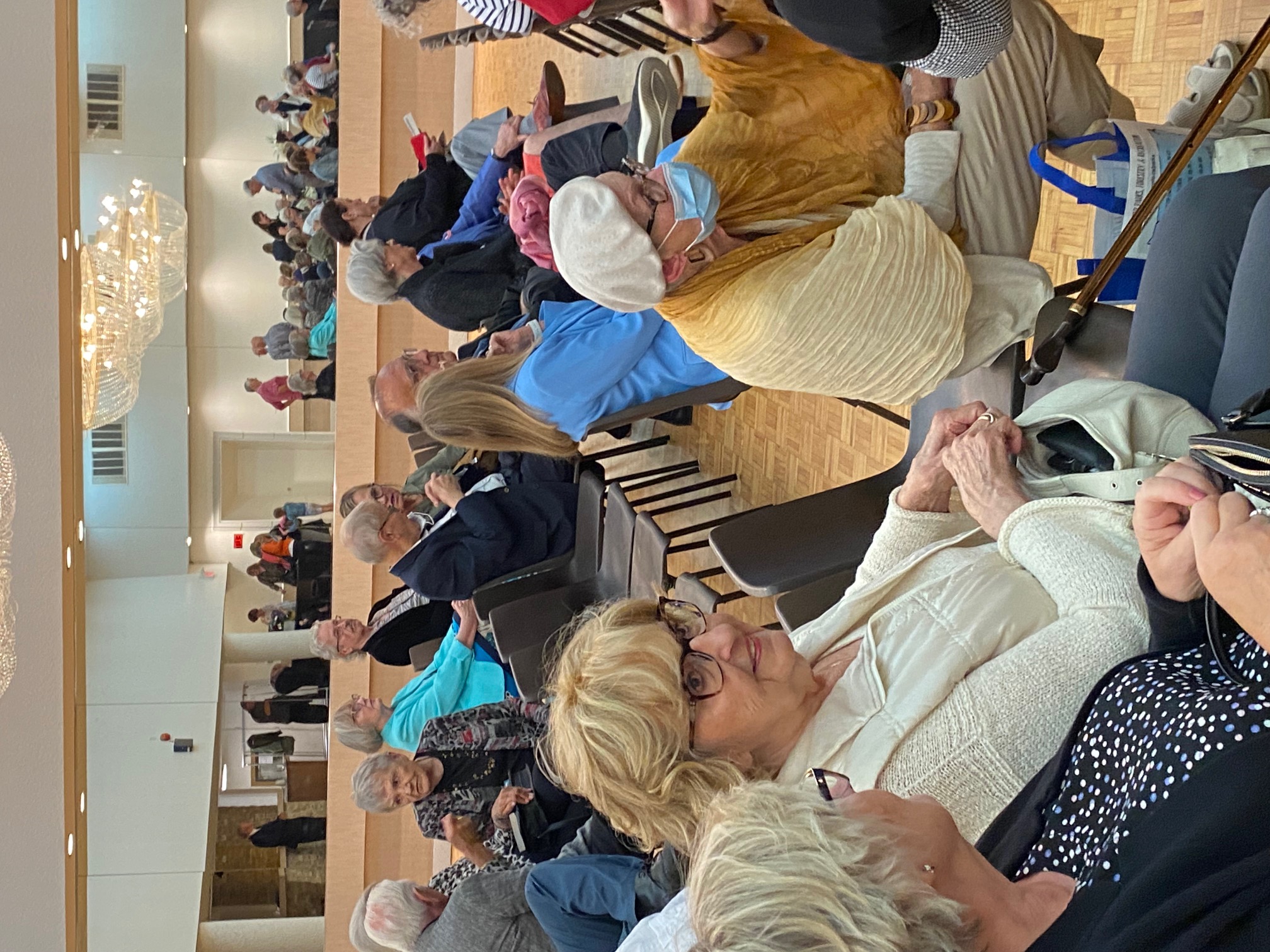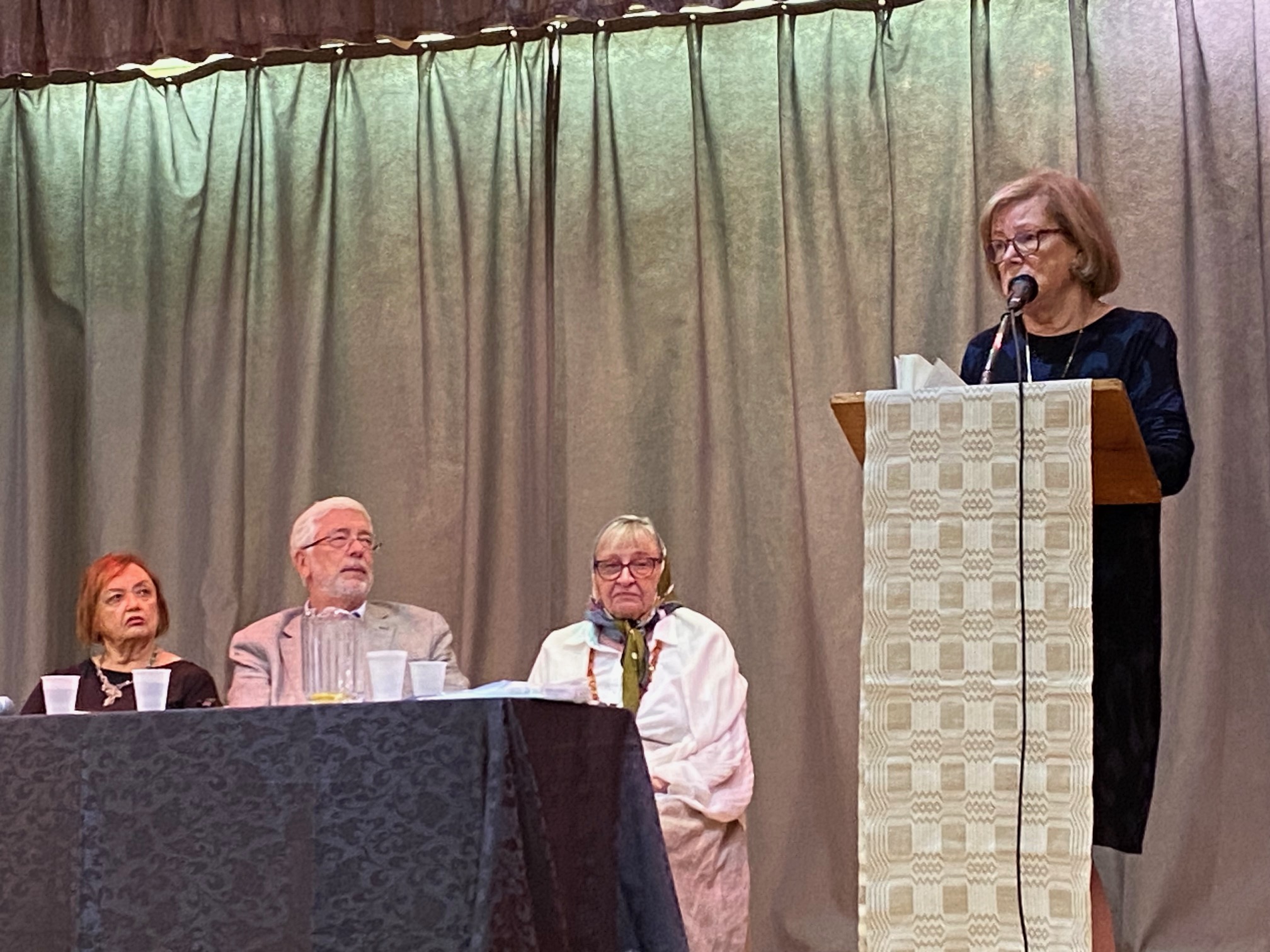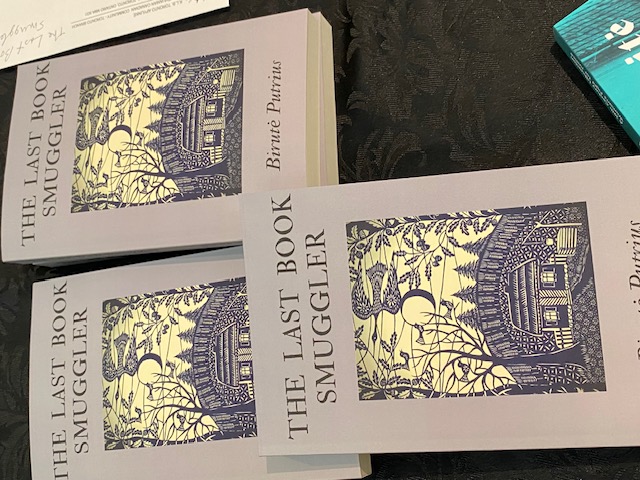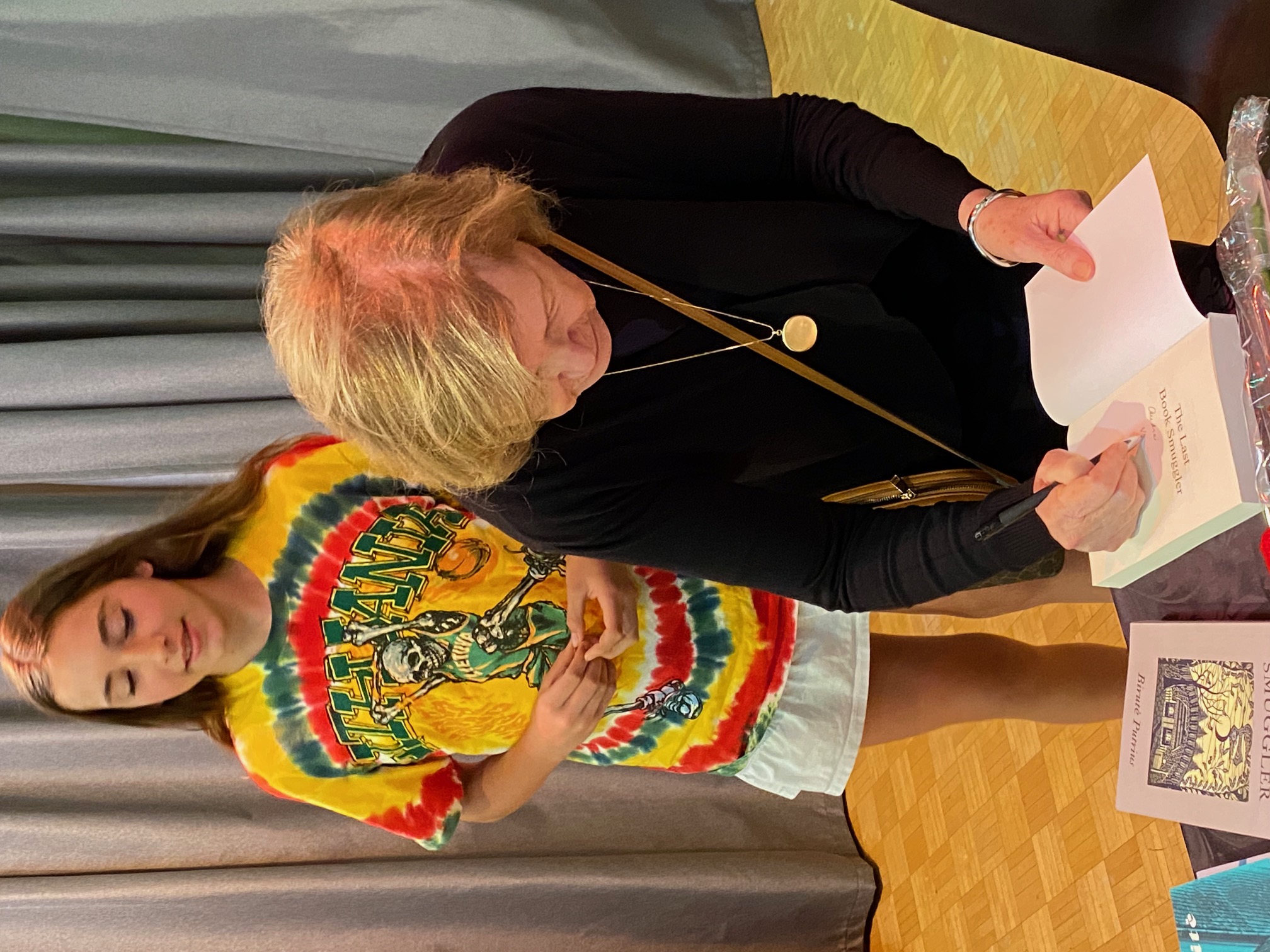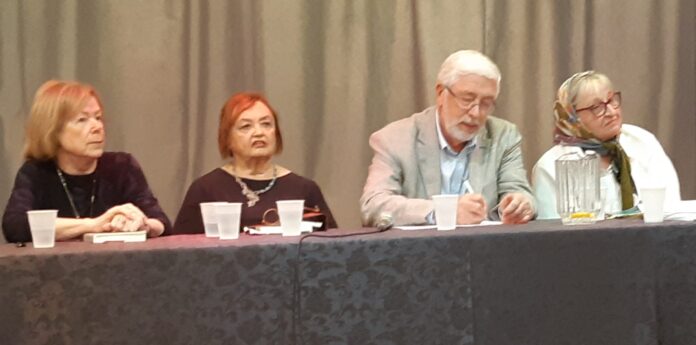
On Sunday, September 24, the Lithuanian House and the KLB Toronto Community welcomed an audience of local book-lovers to a presentation and panel discussion of two books in English. Introduced by Aušra Karka, author Antanas Šileika presented the speakers, beginning with Birutė Putrius.
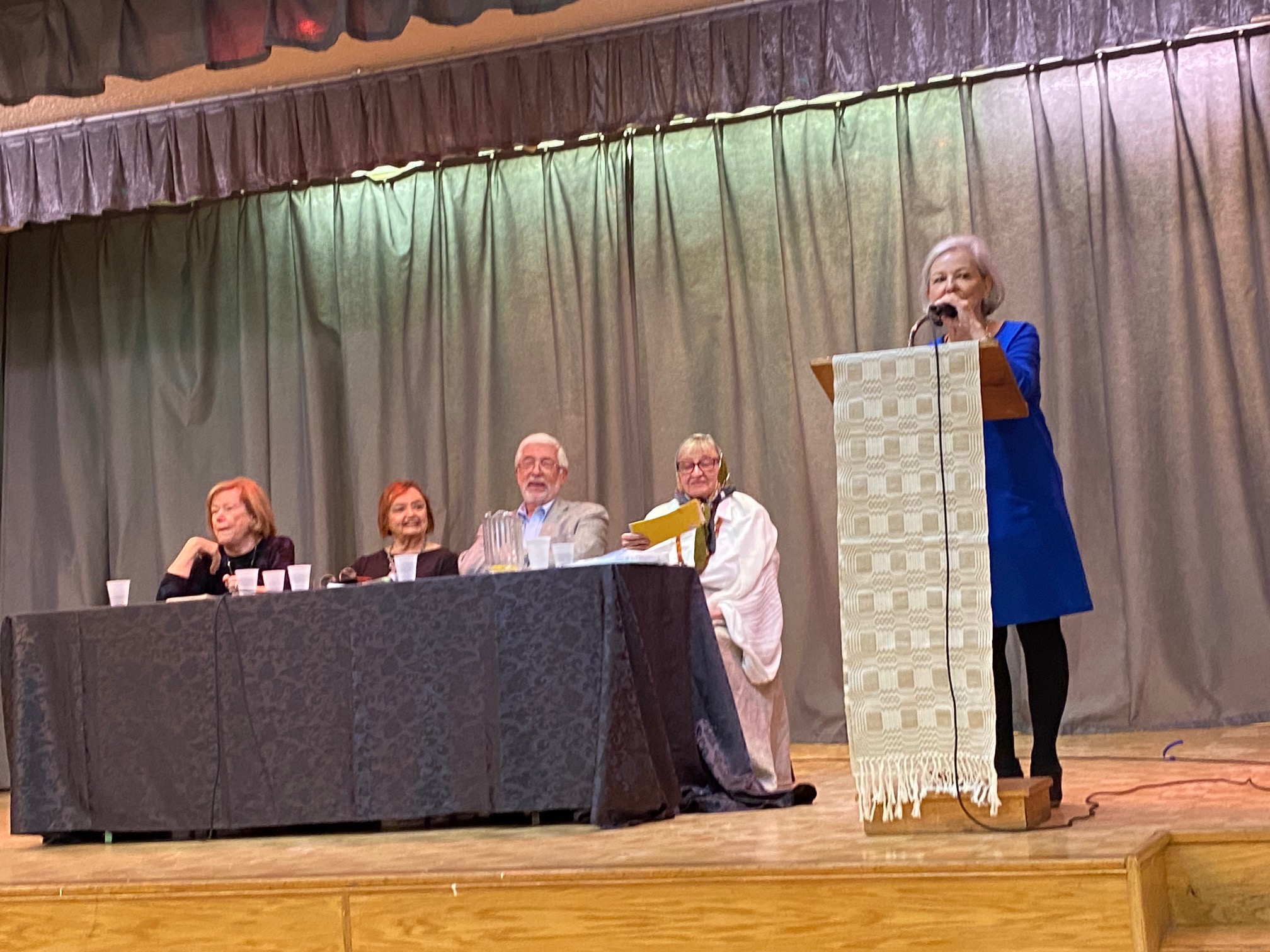 In her book The Last Book Smuggler, Birutė Putrius writes the story of Ada and her grandfather Viktoras, who risked his life for forty years to keep the Lithuanian language alive despite the Russian Empire’s attempts to destroy it. With elements of both folklore and suspense, the book is based on her actual grandfather’s life. Putrius spins an engaging tale reflecting the politics of the time as well as a picture of village life at the turn of the 20th century. The author spoke about her father, Feliksas Putrius, who volunteered to fight the Russians, the German Bermontians, and then the Polish Army, was captured by the Poles, managed to escape the prisoner of war camp and walked home from Poland. He told her the stories about his father, who was a book smuggler. She also read an excerpt from the book.
In her book The Last Book Smuggler, Birutė Putrius writes the story of Ada and her grandfather Viktoras, who risked his life for forty years to keep the Lithuanian language alive despite the Russian Empire’s attempts to destroy it. With elements of both folklore and suspense, the book is based on her actual grandfather’s life. Putrius spins an engaging tale reflecting the politics of the time as well as a picture of village life at the turn of the 20th century. The author spoke about her father, Feliksas Putrius, who volunteered to fight the Russians, the German Bermontians, and then the Polish Army, was captured by the Poles, managed to escape the prisoner of war camp and walked home from Poland. He told her the stories about his father, who was a book smuggler. She also read an excerpt from the book.
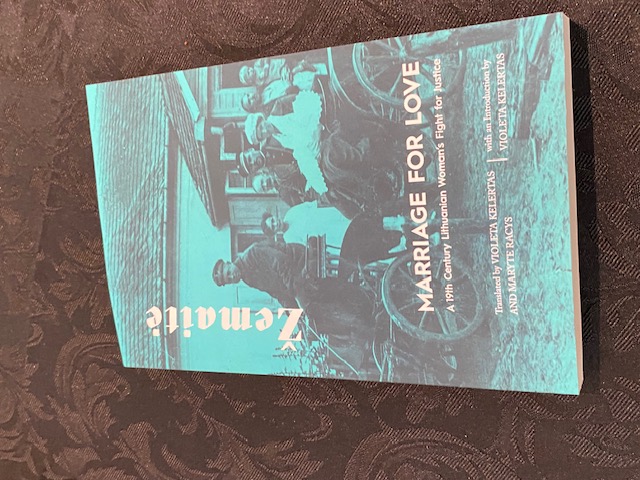 Birutė Putrius, who lives in California, is also the author of Lost Birds. Her fiction, poetry and translations have appeared in numerous publications, and her stories have been optioned for film.
Birutė Putrius, who lives in California, is also the author of Lost Birds. Her fiction, poetry and translations have appeared in numerous publications, and her stories have been optioned for film.
The second book presented that afternoon was a translation of the work of Žemaitė, the pen name of Julija Beniuševičiūtė-Žymantienė (1845-1921). The pen name refers to the region she lived in, Žemaitija (Samogitia or the Lowlands of western Lithuania). A well-known classic of Lithuanian literature, her work was about peasant life in a style best described as realism. In the era of Czar-ruled Lithuania, born to impoverished gentry, she had no opportunity to acquire an education or the means to rise above gruelling farm-work, yet she became a writer, an educator and a major participant in the Lithuanian National Revival.
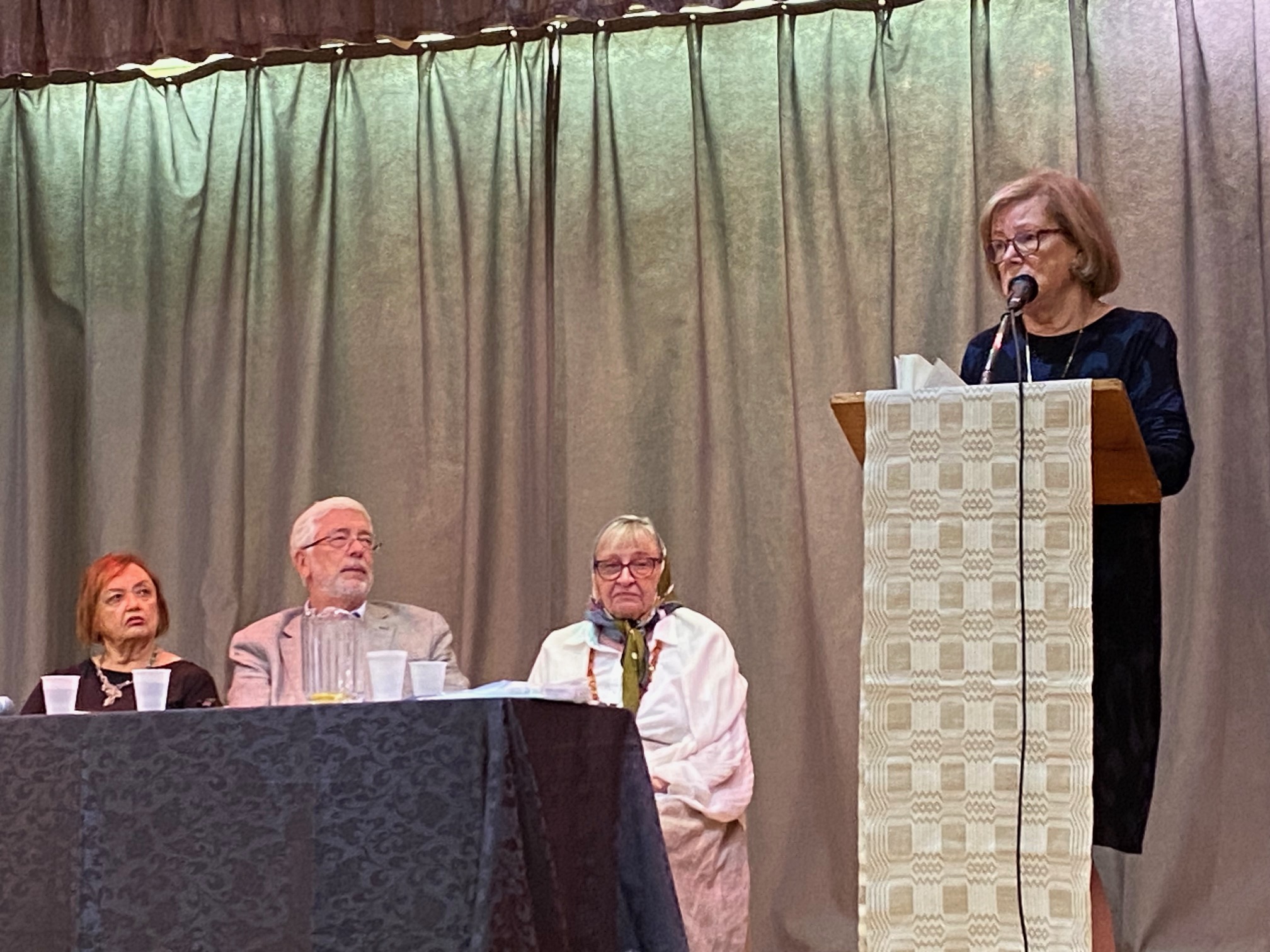 One of the translators of her work was Marytė Račys, the author’s great-grand-daughter, who once lived in Toronto and studied English literature and library science as well as theatre arts. Currently living in Seattle, she spoke warmly of her great-grandmother, even imitating her clook by wearing a “Žemaitė”-style headscarf and simple clothing. She showed the audience a litas-note (the former Lithuanian currency) featuring a picture of Žemaitė, who has also appeared on Lithuanian postage stamps.
One of the translators of her work was Marytė Račys, the author’s great-grand-daughter, who once lived in Toronto and studied English literature and library science as well as theatre arts. Currently living in Seattle, she spoke warmly of her great-grandmother, even imitating her clook by wearing a “Žemaitė”-style headscarf and simple clothing. She showed the audience a litas-note (the former Lithuanian currency) featuring a picture of Žemaitė, who has also appeared on Lithuanian postage stamps.
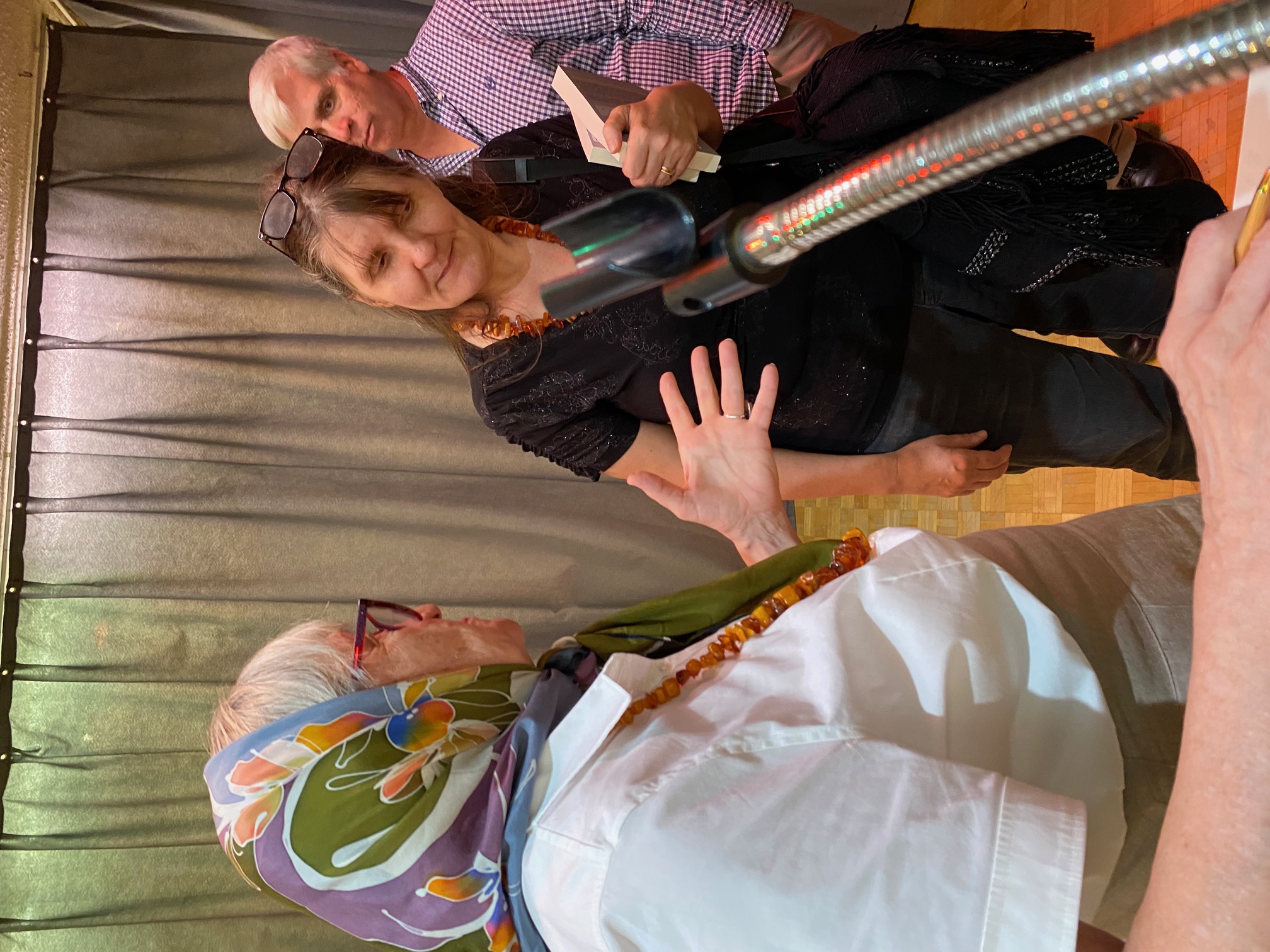 Her co-translator, Professor Violeta Kelertienė, is a literary critic, translator and editor who analyzes the literary scene in Soviet and post-Soviet Lithuania. Formerly the Chair of Lithuanian Studies at the University of Illinois at Chicago, she is now an affiliated professor at the University of Washington. Her translations from the Lithuanian range from poet Vytautas Mačernis’s “Visions” to the the anthology of short stories “Come into My Time”. Currently she is translating an early Valdas Papievis novel, Brydė, about the partisan war.
Her co-translator, Professor Violeta Kelertienė, is a literary critic, translator and editor who analyzes the literary scene in Soviet and post-Soviet Lithuania. Formerly the Chair of Lithuanian Studies at the University of Illinois at Chicago, she is now an affiliated professor at the University of Washington. Her translations from the Lithuanian range from poet Vytautas Mačernis’s “Visions” to the the anthology of short stories “Come into My Time”. Currently she is translating an early Valdas Papievis novel, Brydė, about the partisan war.
The challenge undertaken by the two translators is all the more impressive because Žemaitė wrote in her Lowland dialect, which as many may know, is difficult to understand even for the average Lithuanian, to say nothing of the hardships of translating picturesque descriptive passages, including imitative bird sounds… The fact of bringing the richness of her language into English is certainly a literary feat worth reading closely.
A few questions from the audience were followed by refreshments, book-signing and chatting with the authors. The organizers are to be commended for providing local Lithuanians with such an interesting and inspiring opportunity to stay in touch with Lithuanian literature.
